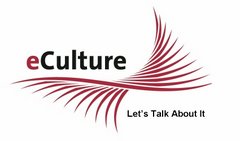



What forces shape extremism?
New conservatives, Neocons? This Neoconservatism is a political movement, mainly seen in the US, which emerged in the 1960s, and 1970s, and is 'enforced' by the administration of George W. Bush. Neoliberal globalisation is a label for economic liberalism that describes policies aiming corporate control and consumerism.
New conservatives, Neocons? This Neoconservatism is a political movement, mainly seen in the US, which emerged in the 1960s, and 1970s, and is 'enforced' by the administration of George W. Bush. Neoliberal globalisation is a label for economic liberalism that describes policies aiming corporate control and consumerism.
As discussed by Noam Chomsky and Gilber Achcar in Perilous Power (2007) "Neoliberal globalisation, or global capitalism, has brought about the disintegration of the social fabric and of social safety nets. People are more and more experiencing a state of disarray and social anxiety, and this leads to forms of violent assertions of "identity", extremism or fanaticism, whether religious or political or whatever."
Are extremist groups reacting to these forces? Has globalisation led to an identity crisis?
For decades, identity has been one of the most important ideologies for the white supremacist movement. In its most radical form, it asserts that Christ will not return to earth until the globe is 'purged' of all Jews and other "Satanic" influences. In recent years, a shift among white supremacists towards agnosticism and racist variations of neo-Paganism have weakened the identity ideology and reduced group numbers.
Black Separatist - Oppose interracial marriages,want separate institutions for blacks
Christian Identity - White supremist, anit-semetic
Ku Klux Klan - Anti blacks, jews, immigrants, homosexuals, and now also Catholics
Neo-Confederate - Pro Southern American Culture & civil war, anti-black
Neo-Nazi - Anit-Semetic, Pro-Hitler
Racist Skinhead - Violent white supremist shock troops
The Australia First Party site is most interesting in its attempt to strive for an Australian National identity. At first glance you would not realise this party advocates a white Australia policy and borders on extremist ideology. Statements in their policies such as "Reduce and Limit Immigration. Immigration mistakes can be big long term mistakes." "Abolish Multiculturalism. End the divisive, government funded and institutionalised policy of multiculturalism." "Strengthen the Family. Promote policies that strengthen and protect the traditional family." Mmmm... worrying! Australian First might not use the 'bother boot technique', however their more subtle approaches are still dangerous.
The Australia First Party site is most interesting in its attempt to strive for an Australian National identity. At first glance you would not realise this party advocates a white Australia policy and borders on extremist ideology. Statements in their policies such as "Reduce and Limit Immigration. Immigration mistakes can be big long term mistakes." "Abolish Multiculturalism. End the divisive, government funded and institutionalised policy of multiculturalism." "Strengthen the Family. Promote policies that strengthen and protect the traditional family." Mmmm... worrying! Australian First might not use the 'bother boot technique', however their more subtle approaches are still dangerous.
But wait... there's more... Another dimension of extremism is fundamental Christianity. A much nicer, far more palatable version of extremism. Chomsky regards the US as one of the most fundamental countries in the world, and one of the few functioning voting blocs there is the extreme fundamentalists, who out of either cynicism or belief have a big effect on the administration. I can see elements of Christian fundamentalism seeping into Australian politics. Is Australia following the US trend? John Howard has been linked to the Exclusive Brethren, a moralistic sect connected to right wing politics. The Exclusive Brethren do not vote, however hold the government in highest respect as God's ministers as outlined in their ‘Testimony to Government’. The exclusive Brethren fund political parties who will legislate appropriate to their conservative beliefs.
 It was interesting to note that in all major newspapers today, the 20th April, 2007, John Howard advises all Australians to use the power of prayer for rain. I'll be interested to see just how often Christian sentiment such as God's Will and Power of Prayer etc. will occur in the media throughout the upcoming election campaign.
It was interesting to note that in all major newspapers today, the 20th April, 2007, John Howard advises all Australians to use the power of prayer for rain. I'll be interested to see just how often Christian sentiment such as God's Will and Power of Prayer etc. will occur in the media throughout the upcoming election campaign.
 It was interesting to note that in all major newspapers today, the 20th April, 2007, John Howard advises all Australians to use the power of prayer for rain. I'll be interested to see just how often Christian sentiment such as God's Will and Power of Prayer etc. will occur in the media throughout the upcoming election campaign.
It was interesting to note that in all major newspapers today, the 20th April, 2007, John Howard advises all Australians to use the power of prayer for rain. I'll be interested to see just how often Christian sentiment such as God's Will and Power of Prayer etc. will occur in the media throughout the upcoming election campaign.

1 comment:
Sadly, extremism in whatever form, fills a void that a part of society perceives they have. In the drive to offend no-one, modern politicians often end up creating voids everywhere. Perhaps this is why extremism seems more evident globally.
As for the rise of Christian fundamentalism influence, I agree with you. This is insidious and usually very non-democratic. The USA, UK and Australia for example proclaim to be secular societies, yet the influence of Christian religion - and often one niche of Christianity - holds influence that is out of proportion to their membership, and is very selective.
Post a Comment